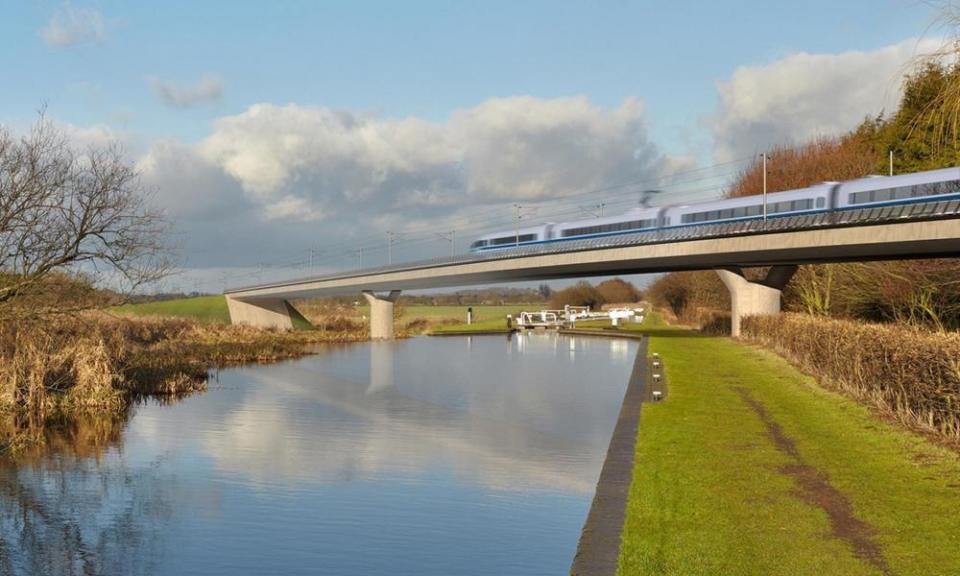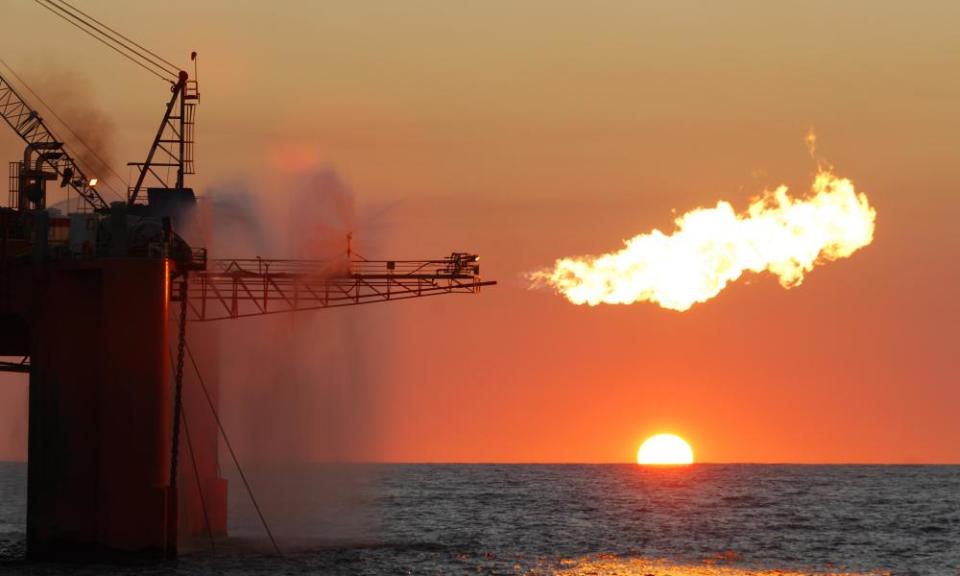Delays and departures as yet another infrastructure project goes off the rails

Long before spades have hit the ground to build Britain’s planned £55bn high-speed train network, HS2 has given the appearance of hurtling out of control. HS2 Ltd is welcoming its third chairman in the last five months after the departure of Sir Terry Morgan. The announcement of major contracts for HS2 stations that were due last week has been delayed, adding to the sense of slippage in a project that will, supposedly, join London to Birmingham by 2026 and link Leeds, Manchester and other points north into rail’s fast lane by 2033.
HS2 maintains that parliamentarians, planners and the thousands of skilled construction workers who haven’t yet departed for Poland can still deliver this ambitious infrastructure on time. But, as scathing reports underlined again last week, the rail industry’s misguided optimism in the face of approaching deadlines has led to disastrous results: for passengers, in the case of the May timetable fiasco, and for London’s finances, with the delayed opening of Crossrail.
Crossrail, of course, was what did for Morgan, who had valiantly attempted to combine chairing both companies since August. The row over who knew what and when about the London line’s woes simmers on in city hall, with the mayor, Sadiq Khan, and Morgan’s accounts apparently at odds. Morgan’s feet were barely under the table at HS2, but such a controversial project could ill afford to have a figurehead who let the last major project slide so near to the finish line.
Scepticism over HS2’s price tag is rife despite attempts to counter with reports of possible cost reductions. As the transport secretary pointed out recently, setting alarm bells ringing, phase two of HS2 is far from being approved: legislation may take another four years, an almost unimaginable timescale in Brexit-paralysed Westminster.
Morgan may by that time consider himself well out of it, and seek consolation on being handsomely remunerated for his short tenure. Whether he did the decent thing, jumped before he was pushed, or just no longer fancied the aggravation, his action stands out for its rarity. The principle that heads must roll only seems to go so far in transport. In the scale of recent rail cock-ups, overspends and debacles, the current state of Crossrail – a year behind schedule and a mere 5% over budget – seems to rank as a relatively well-run project. Compare that with, for example, Great Western electrification, whose 200% overrun, even with drastic pruning, has seen other essential upgrades shelved and Network Rail forced to sell off the family silver to keep other schemes in the pipeline.
A substantial degree of blame for that should surely be laid at the door of the chief executive who agreed a wildly optimistic five-year plan for Network Rail, however reluctantly, assuming that borrowing would cover the shortfall. That chief executive was, of course, Sir David Higgins, Morgan’s immediate predecessor as chair of HS2.
When the railway of today appears to be run so very badly, it is little wonder that so few of the general public are enthusing about the “jam tomorrow” of HS2.
Sunday sees the introduction of a new timetable across national rail, doubtless sending a shudder down the spine of the tens of thousands of commuters whose everyday working lives were scrambled by the railway’s self-inflicted chaos earlier this year. Numerous reviews and inquiries into what went wrong have come up with the answer of a general, system-wide snafu, where ultimate responsibility could only really be held by one man.
Unfortunately, the transport secretary, Chris Grayling, has not chosen to embrace that responsibility – choosing instead to diminish himself by claiming not to run, or understand, the railways. Morgan may be gone from HS2 but will look back on helping deliver Crossrail, a transformational feat of engineering for London. The legacy of Grayling looks increasingly uncertain.

You can’t judge the state of the world economy by looking at the price of oil
Ten years down the road from the global financial crisis and the warning indicators for the world economy are flashing once more, with financial markets plunging last week. There is, however, one red light on the dashboard that looks oddly out of place.
Away from the very real fears over the US-China trade dispute, investors seem to be regarding the price of oil as a “sell” indicator, following a drop in the value of crude by almost a third since October. The plunging value of a barrel of crude is seen as a signal of declining global demand as the economic expansion of the last decade runs out of road. It says to investors: sell now, things are as good as they’re going to get.
The world economy might be slowing, but it is wrong to count this particular signal among the ill omens for the future. Major recessions usually happen when oil prices are high, and for good reason: high oil prices make it more expensive for manufacturers to produce goods and consumers to buy them, acting as a drag on economic growth.
Much of the fall in price has come as a consequence of oversupply; American sanctions on Iran have not weighed on output as much as first thought. Opec, as well as Russia, moved to cut output by 1.2m barrels last week to support the price, helping it to rise on Friday. Moreover, although bargain-basement prices are bad for countries such as Saudi Arabia that depend on crude, Donald Trump would like the price to fall further still.
Though concerning now to some investors, the prospect of a lower oil price might be good news in the long run. It would take the wind out of the sails of inflation, calming the pressure on central banks to raise interest rates and helping to prolong the current economic expansion.
After that, the price should self-correct. It is not an indicator to be feared.
Will the gambling industry lose big by ending live sports ads on TV? Don’t bet on it
Leaked proposals from the online gambling industry to end advertising during live sports indicate that it has learned from the hapless campaign against curbs on fixed-odds betting terminals.
Instead of acknowledging concerns and volunteering to forfeit £100 stakes in favour of, say, a £20 limit, the bookies fought tooth and nail against any restrictions. Only at the last minute did they show willingness to compromise. But it was too late and their nightmare scenario of a £2 limit came to pass.
Not only will their revenues take a huge hit but they have forfeited any remaining goodwill from the public, many of whom came to see them as parasites clinging to their cash cow at the expense of people’s lives.
Bookmakers also have substantial online operations that advertise heavily on TV, a practice that has fuelled valid concerns about the impact on children.
William Hill and Ladbrokes are already household names with a high street presence, so it will be their less-established, online-only rivals that suffer most. That must have made it harder for less-established players such as 888, 32Red, or even Bet365 with its blanket presence around football, to agree to cut back on TV ads.
There remains some confusion over the degree of industry unanimity on this issue. But by making a preemptive gesture, the online gambling firms will hope to avoid more draconian measures further down the line.
But if something looks too good to be true, it usually is. Figures from the charity GambleAware, shared with the Guardian, show that the industry’s TV advertising spend is now far outstripped by marketing online, through channels such as direct emails and social media.
Usage of these forms of media is skewed towards younger eyeballs, the people the industry hopes will be betting for decades to come. In that context, reining in TV ad spending feels less painful.
Cynics could be forgiven for fearing that the gambling industry’s olive branch is designed to protect its own interests as much as those of problem gamblers.

 Yahoo News
Yahoo News 